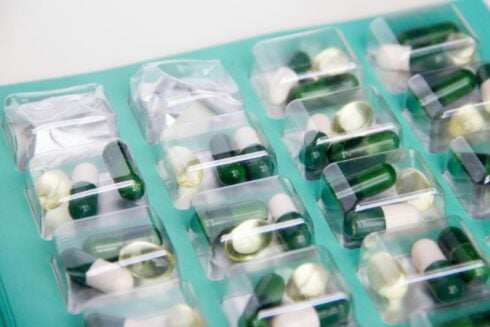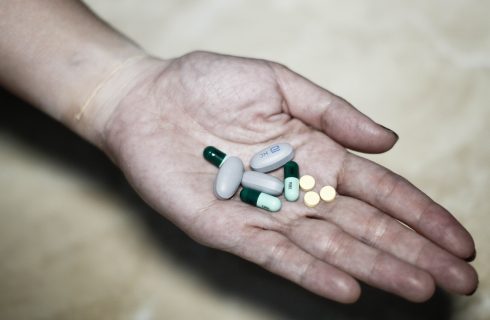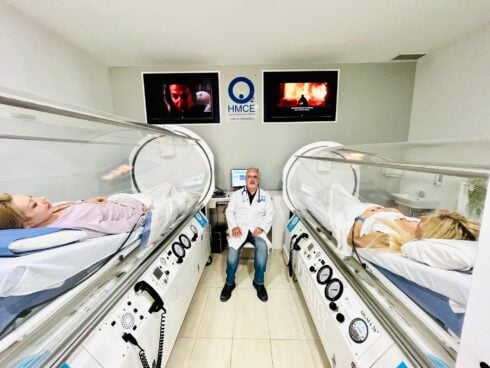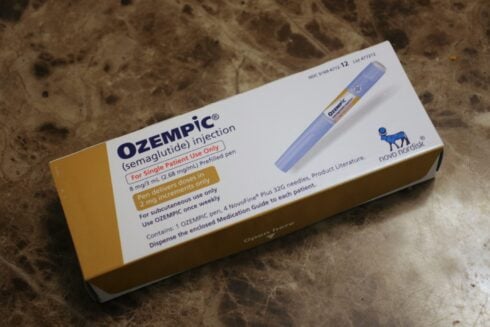‘MAGIC’ mushrooms are better at treating depression than conventional medicine, according to a European study.
Depression is the most common psychiatric condition worldwide, affecting millions, including an estimated 4.7% of the Spanish population. But for many of those diagnosed, current treatments fall short.
In Spain, around 44,000 people are classified as having treatment-resistant depression, meaning they haven’t responded to at least two different kinds of therapies.
Now, a study from Imperial College London has sparked hope for thousands of patients who struggle with side effects from traditional medications.
Currently, one of the most popular treatments for depression are Selective Serotonin Reuptake Inhibitors (SSRIs).
SSRIs work by causing an increase of the neurotransmitter serotonin in the brain. Serotonin is linked to good mood, emotional regulation and sleep.

However, some people can experience significant side effects, such as dizziness, anxiety, erectile dysfunction, loss of libido and diarrhoea.
Now, researchers at Imperial College London have found an alternative- psychedelics.
So-called ‘magic mushrooms’ have long been generating significant interest in the scientific community and though often associated with their hallucinogenic effects, they can have potential mental health benefits.
One of the most promising candidates for treating depression is psilocybin—the active compound in so-called ‘magic mushrooms’.
The Imperial College London study showed that psilocybin can improve mood and general well-being, even in those with severe depression.
Participants reported better social connections, improved work performance, and a renewed sense of meaning in life.
Remarkably, the effects of psilocybin were found to be as strong as SSRIs in improving symptoms of depression, and even stronger than SSRIs in self-assessments of general well-being.
Moreover, while SSRIs can take weeks or months to show results, psilocybin’s benefits were seen from the first day of treatment and continued for up to six months after just one or two doses.
This has caught the attention of regulators. The U.S. Food and Drug Administration (FDA) has granted psilocybin ‘breakthrough therapy’ status for both treatment-resistant depression and major depressive disorder.
This designation is reserved for treatments that show significant promise in early trials, helping to fast-track their development and approval process.
But how does psilocybin work?
Unlike traditional antidepressants, which require daily doses to maintain their effect, psilocybin only needs to be taken once or twice to deliver long-term benefits.
Researchers believe this is because psilocybin may help the brain rewire itself, promoting lasting changes in brain function. Essentially, it seems to reset the brain, offering a fresh start for people who have been stuck in cycles of depression.
Of course, there are challenges and one major hurdle is the stigma surrounding psychedelics.
Classified as a schedule one drug (the same category as heroin or ecstasy), psilocybin still carries a lot of negative connotations.
Many fear the hallucinogenic effects of the drug and the potential for dangerous behavioural changes and addiction that comes along with this.
Despite evidence that psilocybin is not an addictive drug, with research suggesting it could even be used as a treatment for drug addiction, it may be hard to change societal stigma.
Another obstacle is the cost and complexity of administering psilocybin as a treatment.
Although it’s only given once or twice, each session requires careful supervision.
A nurse must administer the drug, and a specially trained mental health professional needs to stay with the patient throughout the experience, which can last several hours due to the hallucinogenic effects.

This level of care adds a financial and logistical burden that some argue healthcare systems might struggle to support.
However, Australia has recently approved the use of psilocybin and MDMA for therapeutic purposes.
A shock to those in the field, it came with no real guidance on how to administer the drug and is largely being used in private clinics for the wealthy few.
While psychedelic-assisted therapy may be expensive, the broader costs of depression—in terms of healthcare, lost productivity, and social impact—are arguably far greater.
In Spain alone, depression is estimated to cost the economy around $6.4 billion each year.
It’s important to remember that psilocybin isn’t being considered as a first-line treatment.
Researchers are primarily looking at its use in patients who haven’t responded to other therapies.
So, for those with severe and treatment-resistant depression, it could offer a new and much-needed lifeline.
The future of psilocybin in mental health treatment now rests on ongoing clinical trials. These larger studies will need to prove that psilocybin is not only effective but also safe and superior to existing treatments over the long term.
Only time will tell if this once-controversial substance becomes a mainstream treatment for depression.
Sources:
https://www.sciencedirect.com/science/article/pii/S0924977X21002182
https://link.springer.com/article/10.1007/s40274-021-7786-9
https://www.thelancet.com/action/showPdf?pii=S2589-5370%2824%2900378-X
Click here to read more Spain News from The Olive Press.








